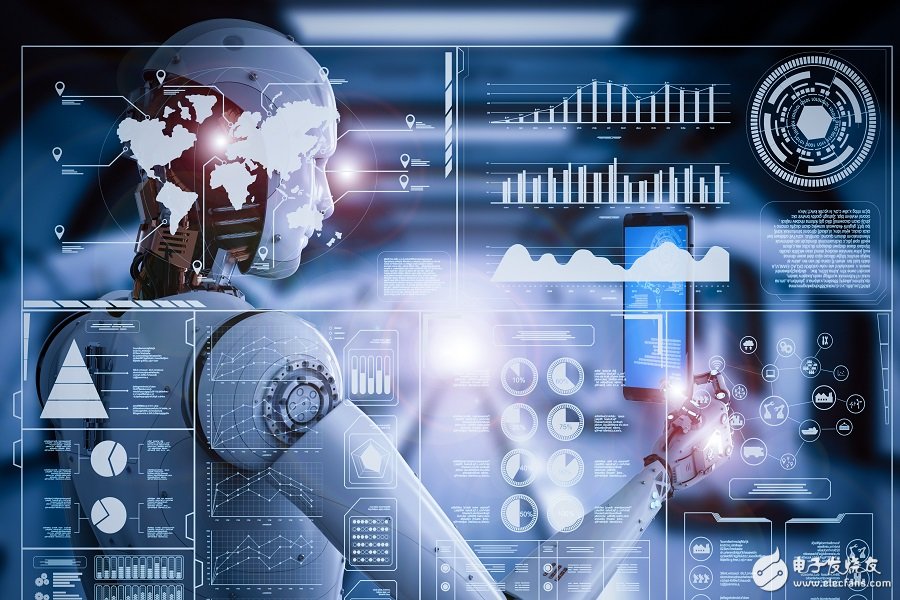Artificial intelligence (AI) has been popular in the customer service industry, but until recently, it was difficult to tell whether it was hype or reality.

Today's artificial intelligence technology is smarter and more contextual than ever. The rise of digital assistants like Alexa and Siri has enabled people to do a lot of tasks with minimal effort, which has puzzled many consumers: “Why aren't many things easy to implement like this?†So companies are starting to take advantage of this. A trend and seeing the enormous potential of artificial intelligence is not just to help customers, but also to streamline processes, reduce costs, and increase the productivity of service agents.
Today, artificial intelligence is being applied to the front line of customer service, dealing with repetitive tasks that take most of the agent's time, which frees up their time and effort and focuses on more complex and higher value businesses.
In addition, artificial intelligence is helping agents to provide more personalized services, by providing information about the customer's consumption history, to get the brands, preferences, sharing suggestions, and offers that a particular customer might like. The symbiotic relationship between agents and robots has never been as strong as it is now, but it is not.
at the beginning
The artificial intelligence people experience in customer service is far from what they see in science fiction movies. Consumers are not confronted with conversational holograms and robots, but interactive voice response systems and chat bots that can only answer very specific questions. This not only frustrates consumers, but also creates problems for companies that find it impossible to communicate effectively with their customers.
Although artificial intelligence technology has changed dramatically since then, companies are concerned that customers' memories of this experience will hinder current adoption. However, just as artificial intelligence technology is maturing, customers expect it to be the same. As consumers become more accustomed to the digital process, as long as their problems are resolved, they usually don't care if they are talking to the staff and the robot.
To ensure the long-term viability of artificial intelligence in customer service, these experiences need to be simple and seamless. If the robot is unable to answer these questions, it will be upgraded quickly and can provide a human agent service that will get all the content needed for all previous interactions and can be queried immediately.
Artificial intelligence that supports chat bots is smarter and contextualized than ever before. Not only does it adequately answer simple and repetitive questions such as "Where is my order?", and in some cases, chat bots can handle more complex tasks, such as booking an entire holiday. And smart enough to know when they can't answer or solve a problem, switch to a human agent, provide a resource article, or upgrade to the best resources to seamlessly solve common problems.
In addition to helping answer customer questions, the customer service team relies on artificial intelligence to help them collect and analyze user habits to provide a truly personalized experience. By knowing who the customers are and the history of their purchases, chat bots can help agents sell items, offer discounts, or help agents find connections.
For example, in the retail sector, if a customer buys a sweater, the robot may prompt the agent to provide a pair of shoes brands they have previously purchased. Although there is no guarantee that customers will purchase additional items, they can be advised to suit their tastes, which will make their shopping experience more enjoyable.
Looking to the future
In the future of customer service artificial intelligence (AI), there seems to be no end. The most exciting prospect, and what most people pay close attention to, is the speed at which artificial intelligence technology matures and the new methods it will be used.
In the current state, artificial intelligence is largely passive, but imagine if a chat bot can predict a customer's problem and provide an answer based on how the customer interacts with the website. This will enable vendors to deliver a more personalized experience, depending on the data that the business collects from the interaction and how it interacts with many other customers.
As more and more successful cases emerge, people's confidence grows with technology, and artificial intelligence solutions are widely used in enterprises. How this will affect existing jobs will be controversial, and questions about the future of the workforce and how technology will shape artificial intelligence will also lead to much discussion. History shows that time and time again, the technological revolution has created more opportunities, improved processes, and improved employee well-being.
Although artificial intelligence can change the way people interact, the need for human interaction does not disappear. While some people prefer manual services, some interactions are best provided by humans. It is expected that companies will adopt a hybrid approach in the future, which is good for both customers and agents. Companies that find this balance will benefit from this continued development.
PCB bus slot edge card sol: 1.27mm, 2.54mm, 3.175mm, 3.96mm, 90 degree, 180 degree dip plug-in board, SMT board, press type, welding type, ear, long pin series.
PCB bus slot edge card sol: 1.27mm, 2.54mm, 3.175mm, 3.96mm, 90 degree, 180 degree dip plug-in board, SMT board, press type, welding type, ear, long pin series
EDGE CARD SOLT
ShenZhen Antenk Electronics Co,Ltd , https://www.antenksocket.com